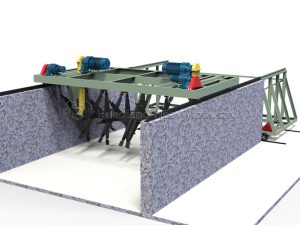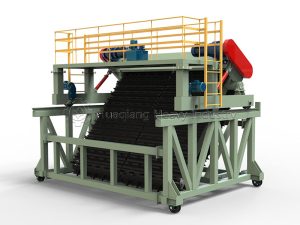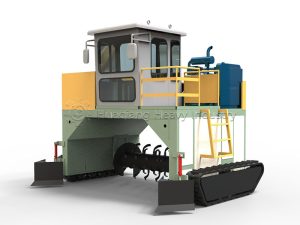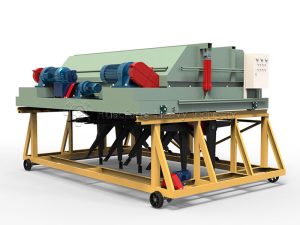In today’s era of thriving sustainable agriculture, have you ever wondered how seemingly useless agricultural waste transforms into valuable resources that nourish crops? The answer lies in modern bio-organic fertilizer production processes, and one of the most revolutionary pieces of equipment is the efficient and advanced compost turner.




The Core Role of Compost Turners
The compost turner is far from an ordinary fertilizer production machine; it serves as the core engine of the entire organic fertilizer production line. With its unique large-wheel design, this precision machinery moves steadily through compost materials, performing the crucial task of turning. Each turn is not merely simple mixing but creates an ideal environment for microorganisms—infusing fresh oxygen, regulating appropriate moisture, and evenly distributing temperature.
Imagine this: piles of agricultural waste, under the careful attention of the compost turner, seem to come alive, undergoing miraculous transformations inside. This mechanical turning process is dozens of times more efficient than traditional manual methods, ensuring a more thorough and efficient aerobic fermentation process.
Complete Equipment System for Bio-organic Fertilizer Production
A complete bio-organic fertilizer production line includes far more than just the turner. It encompasses a full set of equipment from raw material pretreatment, fermentation turning, crushing and screening, to granulation and packaging. However, among these machines, the large wheel compost turner undoubtedly plays the most critical role, directly determining the quality of the final product and production efficiency.
The design of modern large wheel compost turners is a masterpiece of engineering. Their wide tires easily handle various composting sites, powerful drive systems ensure deep turning, and intelligent control systems make operation simple and precise. This equipment is not only suitable for large fertilizer production enterprises but also perfectly meets the needs of farms producing their own fertilizer.
An Important Step Towards Sustainable Agriculture
Choosing advanced compost turning equipment like the large wheel compost turner or chain compost turner represents a commitment to greener agricultural production. These essential equipments required for biofertilizer production transform agricultural waste into valuable resources through the organic fertilizer fermentation process, significantly reducing environmental pollution. The large wheel compost turning machine and other windrow machine variants efficiently manage the organic fertilizer fermentation, producing high-quality organic fertilizers that improve soil structure and enhance crop quality, forming the foundation of any modern organic fertilizer production line.
As we advance toward agricultural modernization, innovative compost fertilizer machine technology guides us toward a smarter, environmentally conscious future. These machines serve not merely as production tools but as vital connectors between traditional and modern agricultural practices. Within comprehensive bio organic fertilizer production line systems, the fertilizer making machine ecosystem – from initial composting equipment to final processing machinery like the rotary drum granulator – creates a seamless pathway for realizing circular agriculture. The integration of specialized fertilizer production machine units ensures efficient transition from raw materials to finished products.
Each rotation of the windrow machine demonstrates respect for natural cycles, while every batch of compost embodies our commitment to land health. This represents the true value of fertilizer granulator systems and composting equipment in bio organic fertilizer production line operations. These technologies are revolutionizing not only fertilizer production methods but also fundamentally transforming our relationship with the land. The complete organic fertilizer production line, from fermentation to granulation, establishes a new paradigm for sustainable agriculture that benefits both farmers and the environment.